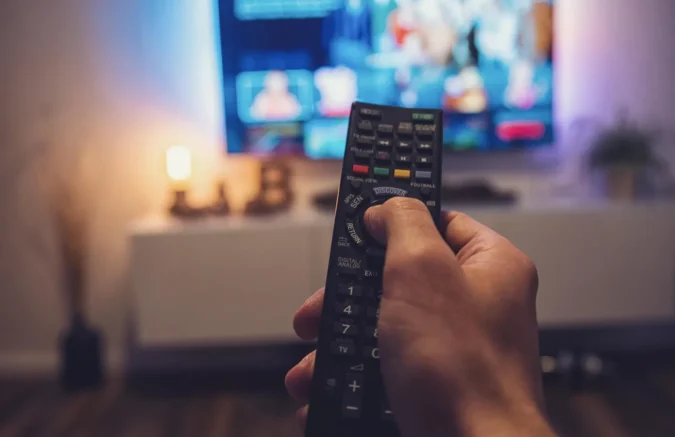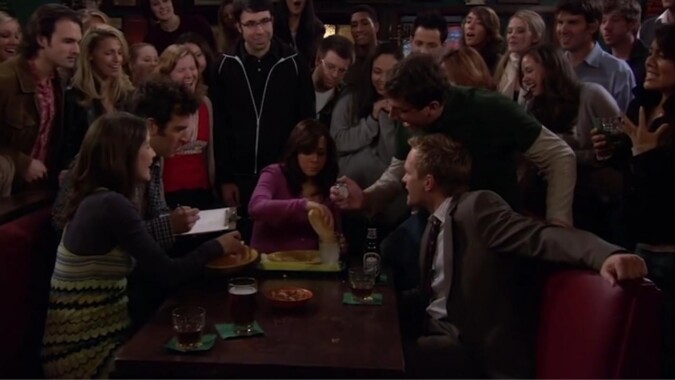Television is a daily companion for millions and has become one of the most powerful tools in shaping public perception.
According to Statista, 60.7% of people in the U.S. watched TV for at least three hours each day. This constant exposure to fictional and reality-based content subtly guides how people think about love, success, friendship, and failure. Television even influences what we want to become.
In this blog post, you’ll learn how TV reflects our lives and molds them.
The Influence of Storylines on Perception of Life’s Path
Fictional characters in TV shows serve as benchmarks. They provide ideas about reaching goals and dealing with setbacks. Viewers absorb these ideas without realizing it. This absorption creates a lens through which they view their own lives. For example, strong television influence alters personal expectations regarding love and commitment.
Betterhelp highlights that movies like Cinderella, Snow White, and The Little Mermaid show love as magical and always ending happily. These stories are often introduced during childhood, creating early, unrealistic beliefs about love.
Even media for adults often shows love as perfect and never-ending. However, relationships have ups and downs in real life. Believing in fairy-tale romance can lead to disappointment when faced with real-world challenges.
Storylines also offer clear examples of success and failure. They present outcomes that often become models for viewers. Content that depicts achievement sets high expectations. It shows hard work as the clear path to success. Conversely, failures are depicted as lessons to learn from. This dual message establishes a framework for how life can be managed.

How TV Glorification of Risky Behavior Can Lead to Consequences
But not all messages are positive or realistic. Television also has a darker influence—one that promotes reckless behavior under the guise of confidence, thrill, or rebellion.
Many shows glamorize risky actions without showing their real-life consequences. High-speed car chases, street racing, and impulsive decision-making are often presented as signs of strength, courage, or freedom. Characters in these narratives rarely face the devastating outcomes of such behaviors. This selective portrayal can mislead viewers, especially younger ones, into thinking these actions are harmless or even admirable.
This false sense of control leads to tragic real-world outcomes. Overspeeding, distracted driving, and reckless maneuvers are no longer confined to fictional plots. They’re playing out on highways every day, leading to road fatalities. For example, KKTV recently reported a car accident due to the driver’s negligence in Colorado Springs.
One vehicle was turning left from Dynamic Drive onto Chapel Hills when it was hit by another vehicle going straight. The driver of the vehicle was from Colorado Springs, passed away due to the injuries she suffered in the crash.
For those affected by such events—whether as victims or loved ones—the consequences go far beyond what any screen can portray. Legal support becomes essential when negligence causes harm. In such cases, speaking with an auto accident attorney in Colorado Springs can help individuals understand their rights. An experienced attorney can help you seek justice and begin to recover both emotionally and financially.
Springs Law Group says a car accident lawyer can negotiate with insurance companies on your behalf and fight for compensation. However, you need to understand that television storylines can be misleading. When fictional behavior crosses into real life, especially in dangerous ways, the impact can be devastating.

Identity, Self-Worth, and Lifestyle Comparisons
Another significant influence of television is how it shapes self-worth and identity. Characters are often dressed impeccably, live in designer homes, and rarely face the consequences of poor decisions. It’s no surprise that many viewers end up comparing their lives to the polished worlds on screen.
Many people compare themselves to TV characters. This aligns with social comparison theory, where individuals evaluate their worth by measuring themselves against others.
Shows like Emily in Paris, Sex and the City, Gossip Girl, and Succession promote luxurious lifestyles that feel desirable yet unattainable. These curated depictions fuel insecurity, pushing viewers to equate material success and external beauty with happiness.
Over time, this can contribute to mental health struggles, lowered self-esteem, and unrealistic life goals. It’s not just about wanting more—it’s about believing you should have more because everyone on TV seems to have it all.
TV and Career Aspirations
Television has long glamorized various professions. Doctors, lawyers, chefs, detectives—the list is endless. What we see on screen affects what many aspire to become.
Prfire highlights a survey from Rovva that shows that TV shows have a big impact on how people think about careers. More than 60% of U.S. respondents said they see fictional TV characters as role models. Over half of the participants believe that TV shows give an accurate picture of real-life jobs.
Popular crime shows like Chicago P.D. and NCIS were named as shows that inspire viewers toward careers in policing and investigation.
These shows depict a fast-paced, stylish version of our world, with high-stakes courtroom drama, action, and emotionally charged negotiations. However, the reality of investigation and policing involves hours of research, hard work, and ethical constraints that TV rarely shows.
This gap between screen and reality matters. While inspiration is valuable, unrealistic portrayals can lead to disillusionment when real jobs fail to meet the expectations built by these curated narratives.

The Reality of “Reality” TV
The rise of reality TV has blurred the line between fact and fiction. Programs like Keeping Up with the Kardashians, Love Is Blind, and Below Deck present dramatized versions of real life. However, these shows are often heavily edited to highlight conflict and luxury. It can encourage people to feel bad about their bodies (promoting negative body image).
This type of content fosters skewed perceptions. Viewers are led to believe that drama is normal, that instant fame is attainable, and that extravagant lifestyles are the standard.
Moreover, Verywell Mind highlights that reality shows are often unrealistic. Most reality TV stars are thin, usually size 0–4. Even average sizes like 6 are labeled as plus-size on TV. However, the average American body sizes of women and men are 16–18, yet are not reflected on-screen.
Reality shows promise authenticity but deliver entertainment. The impact on self-image, social expectations, and consumption habits is profound—and often underestimated.
FAQs
How can reality TV shows change your perspective of the world?
Reality TV shows can shift your worldview by exposing you to diverse cultures, lifestyles, and personal struggles. They often highlight human resilience, ambition, and conflict, helping viewers develop empathy and challenge stereotypes. Reality shows also help viewers gain a broader understanding of how people live and think differently.
Why is TV important in our lives?
TV is important in our lives because it provides entertainment, education, and access to news and global events. It connects people with different cultures, ideas, and perspectives, making it a powerful tool for learning, relaxation, and staying informed about the world.
How do TV shows influence human behavior?
TV shows influence human behavior by shaping attitudes, values, and social norms. They can inspire actions, change opinions, and influence lifestyle choices through repeated exposure. Positive or negative portrayals of characters and situations often impact viewers’ perceptions, emotions, and decision-making in real life.
Television is a lens that colors how people view their own. It gives us heroes, role models, and cautionary tales. But it also simplifies, exaggerates, and beautifies life in ways that can mislead.
As viewers, we must remain conscious of this influence. Enjoy the shows, but don’t let them write your script. Life is not a perfectly written drama. It is unpredictable, emotional, and unscripted—and that’s exactly what makes it real.





